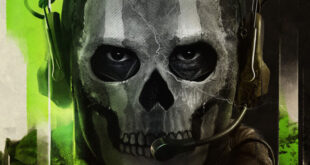Misogyny is not common within Call of Duty’s online community, Sledgehammer’s co-founder and head of development Michael Condrey has said.
"Like a lot of areas of society there are examples of people behaving poorly," he told the BBC. "I certainly wouldn’t characterise the community of fans I know and had the pleasure to engage with as toxic or misogynistic.
"The community as a whole is very healthy, engaged and thoughtful and probably like anything anywhere well outside of gaming. In the fringes of a lot of areas of society there are examples of people behaving poorly.
"Come to the game to have fun, come to be social, come to enjoy and build a community and have a positive energy. Toxic behaviours, abusive language, inappropriate emblems, I don’t want that around.
"So for our community, Sledgehammer Games and Advanced Warfare we have pretty low tolerance for toxic behaviour."
Online games often provide a hostile environment for all sorts of players, although women are often the particular focus of abuse. Call of Duty is anecdotally considered to have one of gaming’s more aggressive fan bases, although part of that will be due to its size – more players mean more bad eggs.
In September a report discovered that female gamers are four times as likely to be harassed online as men, with common slurs including ‘c*nt’, ‘bitch’, ‘slut’ and ‘whore’.
In June a different report (based on Modern Warfare 3 online play) found that while men who play aggressively online are more likely to have their friend requests accepted than those who are polite and passive, the opposite is true for women – they are more likely to have their friend requests accepted if they are friendly and positive.
Why are there differences in acceptance rates between gender and utterance types? As predicted by Expectation States Theory with the Social Identity Model of Deindividuation effects, male and female players who do not violate gender stereotypes are more accepted by other players.
Since there is so little identifying information, you could say that people would imagine what others look like, starting with stereotypes. The negative utterances from the male player would suggest that other players saw it as normative behaviours for a stereotypical male player.”

 MCV/DEVELOP News, events, research and jobs from the games industry
MCV/DEVELOP News, events, research and jobs from the games industry



